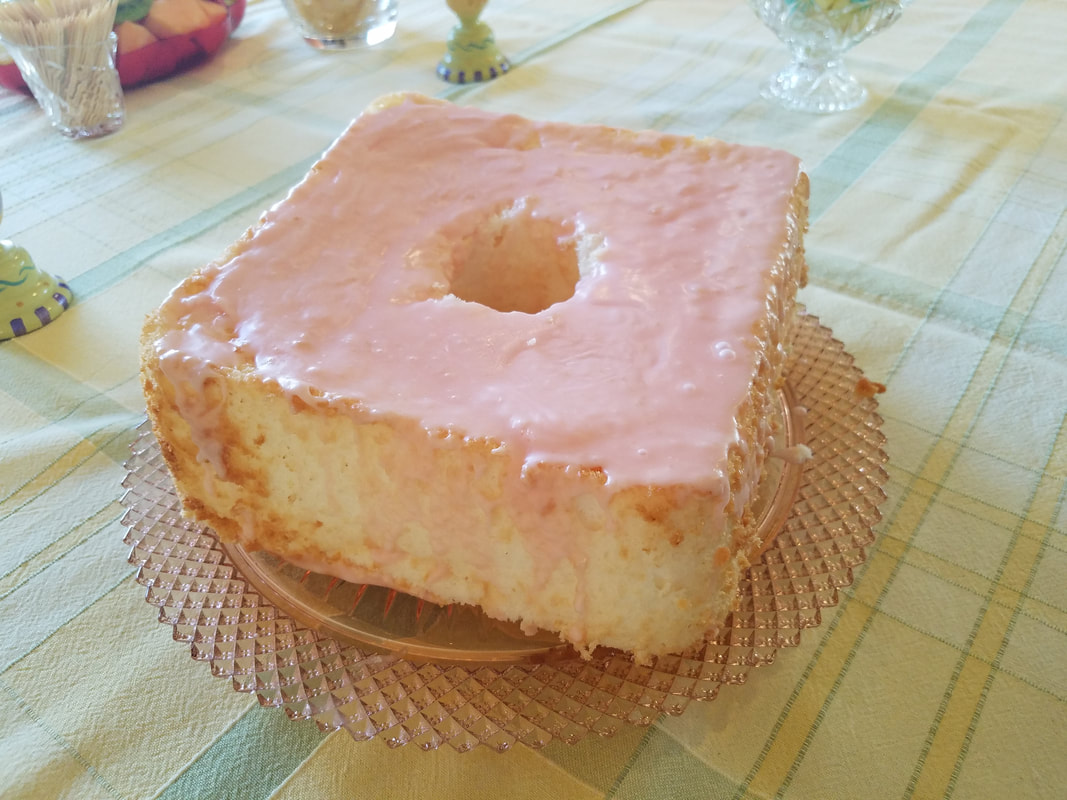|
LAW AND ORDER SVU I'm just putting this poem here because it's not been published anywhere yet, and I feel every day that it's so important for women to be believed. It seems like such a simple thing==to be believed. IT IS NO SMALL THING. Though Mariska Hargitay only "plays" Olivia, I have a deep sense that she believes, too! Thanks, Mariska. @Mariska
In Defense of Binge-Watching Law and Order SVU I blame the early dark for crumpling my body into a heap with the remote stuck on Ion Television watching Law and Order SVU that opens with this blast: In the criminal justice system, sexually based offenses are considered especially heinous— plots intent on scouring for the truth fiercely (unlike executive tweets that toy with veracity, name new scapegoats 24/7). It’s a show, a system, more bent on making order than chaos. I watch the likes of Olivia, (now sergeant) and detectives Fin and John, Amanda and Nick, (sometimes gone rogue) tracking down clues to murders and rapes, hate crimes and pornography when they’re not trying to patch relationships with disgruntled sons and con-artist sisters and to manage estranged wives and addictions to gambling in their on-screen lives. Throw in a whiff of stolen moments for romance. There’s a semblance of reality in this fiction, stories often “ripped from the headlines,” but it’s the victims swimming in self-doubt that arrest me, victims afraid to verbalize what’s happened to them, reluctant to press charges, to appear in court for fear of backlash and the judgy public, victims, the ones so seldom believed. It’s Olivia, she with the dark laser eyes penetrating the terror after the terror of attack. Olivia trying to fortify the wounded with the same words, in every show the same-- I believe you, I believe.
2 Comments
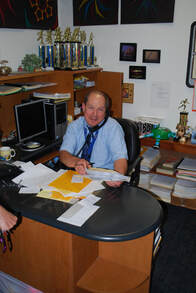 I have been away from my blog for a long time. Winter and trying to make peace with my body, but I decided to post a tribute a wrote about a dear friend. I don't need to say more about him. Let the words I wrote at the time of his too-soon passing suffice. I could say that Bill is a “good guy” or a “man for all seasons” (definitely this definition applies—a man who is ready to cope with any contingency and whose behavior is always appropriate to every occasion) or “an exemplary teacher” or “an amazing human being.” All of these are true. But, when Bill’s wife Kathy called to tell me that she found him unresponsive in his chair that morning, she just kept saying, only half-intelligibly, “My beautiful man is gone.” And then once she added, “He is beautiful, you know,” as if I needed convincing. I could not come up with two better words to describe Bill Rous. Beautiful man. So rarely, maybe once or twice in a lifetime, we are lucky enough to encounter someone who is so Real. He’s the beautiful in Margery Williams Bianco’s story, The Velveteen Rabbit. “Real isn’t how you are made,” said the Skin Horse. “It’s a thing that happens to you.” Real happened to Bill sometime before I first met him in 1983. Or he has always seemed that way. “You become,” Bianco writes. “It takes a long time. That’s why it doesn’t happen often to people who break easily, or have sharp edges, or who have to be carefully kept. Generally, by the time you are Real, most of your hair has been loved off, and your eyes drop out and you get loose in the joints and very shabby. But these things don’t matter at all, because once you are Real you can’t be ugly, except to people who don’t understand.” We don’t usually call men beautiful. Surely, he would have blushed at the idea, put his head down or shaken it and turned away. Sorry, Bill. You were a beautiful man. As teachers, we probably “loved” the hair off his head. We stood in line to ask him questions, get advice, because we knew that he would give us a considered answer. Not the establishment response, not the dismissive reply. You could see he had hours of work ahead of him (and Kathy was waiting for him at home) when you stopped by his office, but the half-empty el cheapo Bic pen got put down, angled across whatever he was hand writing. He gave others the gift of time. For students, he was exactly the same way. Endless patience. Some might say to a fault. May someone say that was my greatest shortcoming! Bill was one of the most professional people I’ve ever known. He always prefaced things with “I don’t want to speak out of turn.” You could see the wheels churning to come up with a validating response that also met with his standard of integrity. He treated everyone with boundless respect. Once when we had professional development at school, we were asked to think of someone who exemplified “character counts.” Bill’s name was a quick leap. He was an in-person kind of guy. Social media and the exposure it affords would boggle his mind as would texting talk like IDK or IDC or BTW. It is no surprise that he had little use or time for social media or cell phones or technology in general. Eventually, some of it became a necessity. To think that one of his last teaching jobs was to supervise students doing math on a computer. Unthinkable. Once though I did send him a note I saw posted on Facebook from one of his students. The only spark of interest I ever saw about Facebook was that he was interested in what former students were doing. The message read: “I remember being in Mr. Rous's math class and Steve Kusek put a whoopee cushion under Gina Martin’s seat and when she sat down and it blew, she threw the whoopee cushion at Mr. Rous.” Bill’s so typical response was "So much for knowledge of gerunds, linear equations, the causes of WWII, and the laws of motion.” Bill’s sense of humor was legendary. I don’t think he even tried to be funny. He just was. Bill took a lot of ribbing. About his #2 pencils, ice-pick sharp each morning and nestled in a wooden paper tray for students to borrow. About his talent show act when he lip synced to Tom Jones’s “It’s Not Unusual.” Or played to a standing O his trumpet with the school band. About his stacks of student tests, meticulously saved and piled so neatly they could have been fed through the crankiest mimeograph or Xerox machine. About the little scraps of notepaper he tucked in his shirt pocket, pulled out to jot down one more thing to check on. And he always did. That he loved both The Three Stooges and Rocky. That his lunch was rabbit food, vegetables from the garden, sometimes his own. That the tan tattered dictionary in his office, just one of the ones he owned, looked like it was published before Noah Webster’s mother birthed him. That the contents of his file folders, worn manila all looking the same, were stacked by priority of importance. That the speed of his walk down the hall signaled the urgency of his mission. You could read Bill if you really wanted to. That his wallet looked like it was the only one he’d ever owned. About his propensity to have a way of doing almost everything. There was precision in everything. His work ethic was crystal clear, and though he didn’t judge others for theirs, it’s unlikely that anyone was unsure of what he thought one should do. There were no apologies from him. He was that way. And that was that. That’s when you are Real. Bill was a math guy. No bones about it. There are others who could tell math tales about him endlessly. He liked the precision of numbers. It fit well with the way he lived his life—from food to finance. But he was also a grammar guy. He liked to write. We were the self-appointed “grammar patrol.” We might raise an eyebrow to each other when someone’s verb didn’t agree with the subject or at the mix-up of compose and comprise. Even though I was the English teacher, it fit Bill’s DNA to be fanatical about the English language. If I would run a rule past him, he’d come back even days later with a Xerox copy of the rule from some antique grammar book he secreted away. Every email we exchanged in the past few years began with Hello comma Gail, never Hello Gail, because he was insistent that the rules be followed. Out of respect, I began to comply by putting that comma after Hi. He had not much use for relaxed rules. Once he forwarded an email from his daughter Amy about a blog called “Grammar Snobbery.” Amy had written this in the greeting. “Hi, Dad! (...capital "D" is correct in this instance.)” Clearly no one is spared! Bill’s reality. Kathy wrote a while back: Can't get the desire to keep working out of him. He loved work and the church and God and gardening, but he also readily talked about Kathy and Amy and Brian if asked. How hard Kathy worked at the hospital, how challenging it was. How Amy seemed to be following in his footsteps including being hard-working , the challenges of her jobs. How proud he was to sit in the room when Brian defended his dissertation even though he didn’t understand anything. (He even took the day off!) And then his added pleasure in Josh and Sherry, and their children, Caitlyn, Ethan, and Lillian. One of life’s ironies is that there was nothing he did, and that is a literal nothing that didn’t reveal his heart. And it was his heart that was a part of last conversations. I’ve been looking for things about Bill, from Bill, the past few days. I found the note he wrote in my scrapbook when I retired. He wrote about things he remembered about our years together (24 if my math is right), and then toward the end, it said, “But in remembering these things, I see how different things will be. That is the whole thing. Because you made such a difference, things will be different when you are not here. I will miss you.” A rare moment of non-gushy sentiment that I appreciated immensely. It is fitting that I steal the end of my words here from Bill, the beautiful man. Yes, that is the whole thing, Bill. Because you made such a difference to me, to others, things will be very different because you are not here. I've read and reread this for grammatical errors, and I am sure there are some. I used fragments and took liberties with punctuation. I'll attribute them to a writer's prerogative to bend the rules. A stretch of poetic license. Sorry, Bill. This is generally a poetry blog, but I've been inspired to write any number of poems about my mom and inspired to write by her encouragement for many years. My mom left us in 2006 after making it almost five years following an ovarian cancer diagnosis. (She might have had better chances if the first doctor hadn't sent her home and told her to come back in 6 months if she was still having the problem she reported and the second hadn't told her she could afford to wait 6 months when the CA125 test was negative--clearly unreliable. That second doctor said, "I learned something," after my mother's seven-hour surgery.) She died February 10 and We buried her on Valentine's Day--13 years ago. My mom was one of the strongest women I know, and I'm fairly sure I have never met anyone as positive as she was. She'd always wanted to go to college, but that was deferred until she was in her 50's. She was finishing both her Bachelor's and her Master's in Texas while I was finishing my Master's at the University of Iowa. She was so interested in things, in knowing things or learning things, but she also was very interested in people. I googled her. Only her obituary shows up. She doesn't need a google presence for me to remember that she never said "no, I can't," that she loved working puzzles (most of my family did, actually), something she did quite a bit during her cancer years, and that she never met a day without a smile. This article, What It Really Means to Hold Space for Someone, resurfaced on Facebook. I know a number of people who know how to "hold space." I hope you are lucky enough to know more than one of those people. Leaving this poem here. My mother held space with her light. luminosity noun \ˌlü-mə-ˈnä-sətē\ the quality of shining or of being illustrious; of being notably or brilliantly outstanding because of dignity or achievements or actions Light Leaped in Her --for my mother When nearby factories heaved smoke-grey corkscrews into an ash-spackled sky she saw only the young girls in a schoolyard nearby fidget twirl and rustle skirts of pearl-pink crinoline their cheeks heat-tinged their palms clasped one to the next. All darkness acquiesced. She heard only the music of girl-toes in patent leather. Inhaled their splash of pink. She smelled incense of flowering plum long before the petals peeled back drank in spring’s avalanche of white magnolia. I can testify her light razed dark. Even on days when my light runs cold still her light leaps. Spring never fails to rise all white heat lusty tiny shoots stud the snow-blind earth.
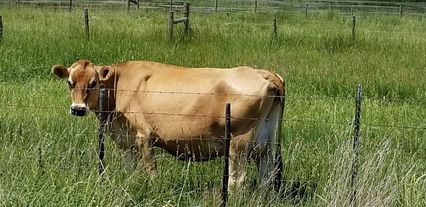 It's been a while since I posted, and my poetry mind's been a bit scattered--trying to finish a manuscript, teaching an online class in poetry writing to non-poets mostly, reading for RHINO Poetry, and getting an occasional acceptance or rejection. POSTCARDS More and more I enjoy unique publication opportunities. Like Postcard Poems and Prose Magazine where one's published poem appears as if on a postcard! postcardpoemsandprose.wordpress.com/ Check it out. And one of the editors that I've had contact with is great, so accommodating! More to come. ORIGAMI Then there's Origami Poems, a website that accepts a group of poems, and with acceptance, publishes the mini book online and provides a one sheet file that can be folded into a book when printed. Love this idea, too. Check it out. I once did a workshop with students in a school in Ohio, and they hand-wrote their poems in one of these small foldable books. www.origamipoems.com/ The lovely ediitor's Jan Keough. More to come. ;) YARN This week I'm headed to Colorado, first time there except for changing planes in Denver, to visit my cousin Jane Goepfert Kramer. I've never been to her new "home," Hayden, Colorado, and I'm excited to go. We've been Midwest "girls" our whole lives until she moved west. She's been sending me photos of the neighbors, an assortment of cows in particular. Ginger and Norma, and if we don't know the cow's name, we're just going with Myrtle. Jane's a pastor there for Hayden Congregational United Church of Christ, the "brand" of church we grew up in many years ago. The population of Hayden is around 1500 depending on which census one reads. I'm looking forward to chatter and laughter (because she comes from the teasing side of my family) and a few card games and talking to Norma and meeting some small-town folks and attending her church on Sunday. And leading a much slower life for a few days. The Hayden Public Library has graciously offered to let me do a reading there on Wednesday, July 18, and in the morning, Thanks Jane and Ana Lark. I'll be doing a workshop with third through seventh graders in the morning also. I'm not sure what to expect. Even the smallest town I've ever lived in had thousands and thousands more in residence. Based on the conversation I had with Ana, the head librarian, I'm saying that the modis operandi is open arms! Not a lot of rules. Flexibility about everything. Salad bar provided with the poetry reading. Graciousness. I like it! Less anxiety, more pleasure. Today I learned that someone who runs a factory that makes yarn LOVES poetry, and she wants to know if I'd be interested in having another book-signing at her factory. What opportunity for doing that is there in Chicagoland! And having it be arranged pnly days before my arrival. Stay tuned. To be continued . . . I'll let you know about Myrtle, what she has to confide to this city-folk.  Sunday I took a friend to the ER, and in her room, they had a print of a lilac bush, with the quote, "Wherever there is a human being, there is an opportunity for kindness." It's attributed to Lucius Annaeus Seneca who lived 5 AD to 65 BC. Evidently there was a need for kindness then also. I thought that the ER room was apropos for this saying, as generally, one does receive much kindness in this often harried but caring setting. It's hard to ignore any acts of kindness that come our way in our current tumultuous state--so often like we are being bombarded with hate-driven rhetoric. The need for kindness was driven home even more so when I had windows installed yesterday, and I sat in my office all day listening to a man berating the younger "helper" he was working with. I don't know how long they have been working together--maybe not long--but if the younger man was in training, then as a long-time teacher and as a human being, I was appalled with the strategies the "teacher" of the pair employed. Though it was clear that the older man knew the dangers of installing windows on the second floor of a building, the NOs that got shouted, the "You have to pay attention," the "What are you doing?," the "What did I tell you?," and the stinging dart of "Are you a moron?" certainly were devoid of ANY kindness whatsoever. I never witnessed the young man do anything but try to understand or please. On my worst day of teaching, I would not have spoken to a student in that way. I was so surprised that the young man did not WALK or TALK BACK. I felt later that I should have found a way to say something to both men. Surely there was another way to show concern and teach, to communicate instructions and warnings that did not rely on ridicule. Personally, I was very undone by the barrage of vitriol that went on all day long! I can't help but think about the children being detained, separated from their parents--being held in cages. An abomination. No matter whose rulebook we use. Kindness may seem like a "weak" word to combat hate, but it may be the strongest impetus, the best tool or weapon we've got. I went looking for a poem this morning. I simply share this with you. Kindness BY YUSEF KOMUNYAKAA For Carol Rigolot When deeds splay before us precious as gold & unused chances stripped from the whine-bone, we know the moment kindheartedness walks in. Each praise be echoes us back as the years uncount themselves, eating salt. Though blood first shaped us on the climbing wheel, the human mind lit by the savanna’s ice star & thistle rose, your knowing gaze enters a room & opens the day, saying we were made for fun. Even the bedazzled brute knows when sunlight falls through leaves across honed knives on the table. If we can see it push shadows aside, growing closer, are we less broken? A barometer, temperature gauge, a ruler in minus fractions & pedigrees, a thingmajig, a probe with an all-seeing eye, what do we need to measure kindness, every unheld breath, every unkind leapyear? Sometimes a sober voice is enough to calm the waters & drive away the false witnesses, saying, Look, here are the broken treaties Beauty brought to us earthbound sentinels. Link to source and audio recording: www.poetryfoundation.org/poetrymagazine/poems/41786/kindness-56d22013a8d03 It's mid-May almost. I just snipped lily of the valley from the backyard. The fragrance is unmistakably sweet. Something I imagine smelling on a grandma with a hankie. Mother's Day is two more flips of the daily calendar. Many years I shared my birthday with a celebration of my mother for Mother's Day. I was happy to do that.
My mother has been gone from this earth for 12 years. She battled ovarian cancer which is never pretty. Cancer is rarely pretty. Some people beat it. I wish we heard more of that. It seems lately too many people I know are in the throes of it. It taxes the most resilient patient and caregivers. I remember clearly the first visit my mom and dad and I made to the oncologist who seemed almost flippant. Like this as an everyday thing that he had under control. He did not welcome questions. My mother was rarely demanding, but after a time, she decided to look for another doctor. The second oncologist was very business-like despite my mother's efforts to soften his "style." Six months before she died, we, my father, mother, and I, visited that second cancer doctor who told my mother that there might be one more drug she could try that would give her like 30% chance of living six more months. My mother was done. She wasn't giving up. By this point, it was about quality of life. She'd had numerous allergic reactions, nearly died from chemo drugs, had been through three different rounds plus bouts of radiation, made it 23 months past the first round instead of the 24 months we were hoping for because statistics said she'd live longer if she could make it 24 months--some kind of magic number or guesstimate. She almost NEVER complained. By the time she decided no more chemo, she was four and a half years in. The moment that she told the doctor that she was not going to try this last ditch chemo, he was DONE. That was it. It didn't seem to matter that she was in pain, that we had questions. It felt so heartless. Surely there has to be a happy medium between over-confident and cold. I remember so much about those years, the doctor visits, the good times, and there were many, in between the tough ones. But there was always, always a nearly crippling sense of loss before THE loss that I could not shake. I recall one day my mother was not her usual inquisitive self on the phone. Later I learned that she had stopped in the middle of the living room near a chair and sobbed in my father's arms. It would have shaken me to the core to see that. I think I'd seem my mother cry three times--at her father's funeral, when her arm got caught somehow in a window, and when my brother left tar in his pants and they went in the dryer. She sat for hours in front of the dryer scraping tar off the drum. I know people, mostly women, who had mothers who criticized their appearance, who failed to mother them in the most incomprehensible ways, mothers who died young, mothers who were absent physically and emotionally. When I hear their stories, I know I was lucky. Even now though I struggle for words to say how much she meant to me. She was not perfect, though I often thought she was. Darn near it often seemed. She had an unquenchable curiosity about life and an invincible spirit. She infected and affected people she met with her kindness and positive disposition. I'll let this poem speak for her absence. The Cake Knife still missing the ivory- handled knife yellowed scorched in one spot once buried in my mother’s utensil drawer after searching cabinets and dark spaces under potholders in the silver chest still missing use another my father said and I use the knife he hands me to cut my favorite cake the one she always made for me-- the confetti angel food glazed in pink that does not taste the same --first published in YourDailyPoem.com yourdailypoem.com/listpoem.jsp?poem_id=2231 A recent version (2018) below made with one grandmother's square cake pan and my other grandmother's depression glass plate. 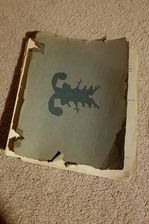 I guess it's a question that gets asked often. Why does poetry have such a bad rap? Earlier this week a salesman came to my house to give me an estimate for replacement windows. I already knew I was ordering, so basically he was chitchatting while writing up the order on his iPad. I learned in course of the conversation that he likes to read. A lot. He likes to read historical fiction, though he didn't quite have a name for it. I mentioned that a woman in my book group likes to read only fiction that she can learn something from--historical fiction would also be her pick. On his way out, we were were still talking about this and that, and he saw my new book in the front hall. He said, "Did you write that?" I said, "Yes, it's poetry." His response, "Oh." I chuckled a a bit about that. The "oh" and the voice- dropping disappointment. He was apologetic, but it was a reminder of poetry's "bad rap." This week I worked with an eighth-grade student who had to pull together a poetry project. He had to write four original poems, mostly from a formula. Two he chose to write were called "I Feel" poems, one of which began "I feel blessed / and cared for." Much much abstraction. Then he had to copy four poems from books--not write about why he chose them or respond to them or "talk" about them. He had to "design" a "fru-fru" cover (because of course, fru- fru goes with poetry) which consisted of a clipart couch and the title "Poetry on the Couch" derived from the only poem with a spark of creativity, one that we worked on together. That poem personified his living room couch. He was all smiles when he finished that poem. "That was fun." I hope that is what he remembers about poetry. The teacher gave back his project during class the next day; she had read through it while students were taking standardized testing, and she said that she'd love to give it an "A" if he would only take the time to go over the handwritten poems he had chosen in INK instead of pencil. I know my eyebrows raised to the low ceiling in the dining room. And then I told him just a little bit about the project I did in eighth grade. How I remembered it still. That project was at the other end of the spectrum in terms of requirements and difficulty. I've kept it for over half a century, partly because I'm sure I must have had a meltdown putting it all together. The project included pages of notes I took during class, definitions of poetic terms including "sentiment" and "caesura," quizzes on poems discussed in class, and an analysis of every poem we discussed in class--at least ten, including "Exposure" by Wilford Owen, Poe's "Ulalume" and "Annabelle Lee," De La Mare's "The Listerner," "Trees" by Joyce Kilmer, and poems by Thomas Hood, Wordsworth, and Frost. Because I tend toward the over-achiever, I included short bios on each poet and "wow"-ed the teacher. Bonus 15 points! I don't recall it, but I must have chosen William Henry Davies to read in-depth. The last section had to include an explication of ten of the poet's poems. The teacher wrote: Poems could be explicated a little more exactly. Oops! The packet was 56 typewriter-typed pages with handwritten notes throughout. I'm guessing that some students left Mr. Rochelle's English class thinking and expressing much the same sentiment as the window replacement salesman. I'm not sure why I hung onto the project for so long, the pages now fragile and withered. It was a lot of work, and undoubtedly a bowl of tears, but so was the Civil War project we had to do that included copying down every battle and an outline of all the details about each battle. Nowhere does that exist in my current "saved" files or boxes. I query myself: What made poetry memorable? I know at that time I had never given even fifteen seconds of consideration to becoming a poet, much less a published one. What made poetry stick? The teacher. Maybe. The sheer amassing of material? Maybe. The cover that I thought was so clever but my teacher did not "get"? Possibly. I'm sure there was a convergence of many factors that led me down the poetry highway so many years later. Maybe for me it ends up being about "learning something" too, and not so differently from the lovers of historical fiction. Last Sunday I had a book launch for my latest book, Tapping Roots. A non-poet friend of the hostess approached me to buy a book after the reading. She told me she cried during the reading of at least a couple of the poems. She was extremely complimentary, and she was so surprised at how many ways she connected to the poems themselves. Of course, I was pleased. One specific comment she made was that the poem about my father as he remembered his father forcing him to prove himself a man was told with such "small real estate." I remember my struggles with this poem to do just that--to avoid overtelling, overwriting. Poetry's magic for me IS in the "real estate." How words mean, how they are structured, how the "property" is painted, how I learn from the process of putting words together and from reading how others do the same. And how that "real estate" is received, how it lives on. I'm not sure I'll make any big inroads in poetry's sour reputation, but . . . The manning-up poem-- My Father Remembers His Father I. Dad is the foreman, supervising work on the hospital. Before that, Rust Plumbing. And before that, the mines, black dust living in the creases in his hands, his eyelids caked, his lips cussing blackness. You never did a hard day’s work in your life, he says when one-by-one my brothers and I find work in factories or offices. His handtools idle in the garage-- we are never allowed to touch. You sissies. He hounds us-- Nothing but a bunch of sissies. I am the sissy who delivers papers, the one who rolls the clay to smooth the tennis courts behind the high school so I can hit a couple balls, the one who works in the pants factory after high school making sure the line workers have the zippers and buttons they needed. I am the sissy who turns over all his weekly pay ‘til I get out. II. Behind our house is a grape arbor. Out back near the alley, a chicken coop. We raise our own chickens, make wine from grapes we pick and crush. More work for us boys. I am the oldest. Once my father must have thought that I needed to prove my manhood. Go out back, he orders. Catch a chicken. Cut off the head. Catching isn’t that hard. I carry it to the stump scarred with the blade of the axe. Thump. Thump. My father’s footsteps on the bricked walk from the house. I know I need one clean cut. One swing clear through. Swing and miss. Clinched. Sissy. 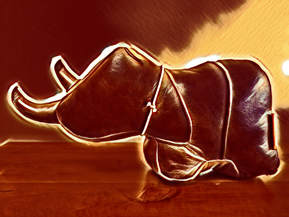 For those of you who are unfamiliar, RHINO is an international journal that publishes poetry and flash fiction including translations. We have a long history that stretches more than forty years. We call "home" Chicago, but recently we have a small contingent in the West near LA. And it's no secret that the way RHINO editors work is a bit unique. We actually meet eye-to eye! Not just three or four of us, but a whole crash of us. After doing a bit of research, I understand there's another (little-known) name for a congregation of rhinos--a stubbornness. (Check out this list of animal group names by clicking here.) That seems a bit odd, a stubbornness of rhinos, or RHINOs, but maybe it's a fit. In the two weeks before each meeting, and every day really, editors are reading submissions on the online submission manager. Once a poem (or a group of poems) has had four readers or more and at least ONE of those editors gives the poem a ONE using a three-point ranking system, it is sent to the table for discussion. Any and every poem given a "1" by even one editor gets discussed. That's pretty amazing considering we receive thousands of submissions a year from April to October. Click here to learn more about submissions. And check out our new website while you're there. Between 10-15 editors on any given week gather around a big table in someone's home. We open our laptops and fire up the iPads to call up the submissions that will be discussed. The poem is read aloud at least once, and then discussion ensues! We try to be somewhat efficient given the volume, but often the six or seven minute timer goes off and the discussion about how well the poem works, how it impacts us as readers, how it fits with what we've published, and what we'd like to publish continues. Believe it or not, there's not much arguing. We try to keep things friendly. We have editors among us working as teachers, the self-employed, employed in a library, or working out there in the world somewhere, and the retired from a variety of careers. Many of us have MFA's but not all. Most of us write and publish poetry. Quite honestly, we celebrate the differences among us. We need those differences. Some of us lean to the lyrical, some the experimental, and others might be fans of a good narrative. We're always paying attention to language. That's hard to ignore! And craft! I'd have to say that when one reads as many poems in a year as we do, a poem really needs to stand out to make it to the table. Maybe the language just sings. Or there is an adept handling of a topic that outshines many others, for instance, love poems or poems of relationship or family strife--types of poems we see often. Taste naturally also comes into play. And we all want something that moves us! One of my favorite parts about the discussion is that on first blush one might not be interested in a poem at all. After a convincing argument is made, one can become a convert! We vote by simple majority. If there are ten of us at the table, it takes six votes for the poem to be accepted. We're not just one editor making decisions, or even two or three. We're a CRASH of rhinos. Most of us have a "job" we do to make RHINO work in addition to reading--database, website guru, book-shipper, event managers, business manager, publicists, FORUM hosts and RHINO Reads moderators--plus the people who get that publication to the printer every year! We're not always well-oiled. But our intent is there. And the only way this works as Ralph Hamilton, editor-in-chief, will tell you is through mutual respect and concerted acts of kindness in an effort to celebrate a bit of the poetry that comes our way. In the end, we stubbornly and with deliberation publish poetry, yes. But I've met a lot of wonderful people through my Rhino connection. Publish, poetry, and people. The perfect trifecta.  One of the writing strategies I like to use almost every time I begin a draft is to generate a list of words from another source, from a book of poetry or fiction or from almost anything written that's lying about. Sometimes there's some intentionality and sometimes not. I look for words that aren't in my personal lexicon--not that I don't know them, but I may not think to use them. Then I prop up that list of words in front of me at the computer or on my lap. SOMETIMES a word on that list will generate an entire poem. I'm always looking for a way in--and about 80% of the time I'd say, my poems spring from a list. There's nothing proprietary about a list of words from another source, but I love how the list pushes me in a new direction or actually becomes the prompt or allows me to use much fresher language than I might otherwise. It eliminates hum-drum, I hope. I've divined words from poetry books like Break the Habit by Tara Betts and Maggie Smith's Good Bones, and Pattiann Roger's book, Holy Heathen Rhapsody. and even a fiction book, Bradbury's Fahrenheit 451. I still marvel at what gets spit out on the page. I've read through entire books circling words as I read or just found and used a single longer poem. Rarely am I looking for a specific type of word for a specific subject. Rather, the goal is to gather words that do not seem to fit together or the subject, if there is one. The list IS my entry to the draft whether I'm writing about Frida Kahlo, the hospice caregiver bathing my mother, or my brother's childhood clubhouse. This past week I wrote a draft of a poem currently titled either "Un-dream" or "Upfront." I had been reading through poems in the anthology section of Amorak Huey and Todd Kaneko's new book, Poetry: A Writers' Guide and Anthology. My list for the poem I was working on this week--"Un-dreaming/Upfront"--was periphery, feistiness, sachet, lustrous, and quaint. Usually, the list is much longer, but the word "sachet" leaped at me, and I needed a poem draft that day to take to my writing critique group. As it turns out, I only used one word from my list, but more often I mayuse six or seven or more of the words from a list of twenty, for example. Here's an excerpt from the poem which ended up being about a dream and The French Lieutenant's Woman and Diego Rivera and . . . "all while I pretend to be more the me of me, daffodils and bunny-shaped sugar cookies with red hots for eyes, until I remember tucking sachet in with the thigh-high black stockings and the pink garter belt so they’ll smell of lavender next time I tug them out, who knows when," Part of me can't imagine not writing this way. I've been doing it so long. One of my mentors, Alice George, used to talk about a poem's "front porch" as the beginning of a poem that got you to where the heat of the poem was, got you to the real poem you wanted to write. You built this elaborate porch but you didn't need it. I think of my strategy, my list, as "the purple door." The entrance. My entrée. |
Archives
March 2021
The Revival Tour
Poet Bloggers 2018 Kelli Russell Agodon- http://ofkells.blogspot.com/ Donna Vorreyer – https://djvorreyer.wordpress.com Beth Adams – http://www.cassandrapages.com Sandra Beasley – http://sbeasley.blogspot.com Carolee Bennett – https://gooduniversenextdoor.com/ Mary Biddinger – wordcage.blogspot.com/ Andrea Blythe – http://www.andreablythe.com Dave Bonta – http://vianegativa.us Jim Brock -- http://picturesthatgotsmall.blogspot.com James Brush http://coyotemercury.com Angela T Carr https://angelatcarr.wordpress.com/ Grant Clauser http://www.uniambic.com Kevin Connor – https://ordinaryaveragethoughts.wordpress.com/ Jared Conti – http://www.theoracularbeard.com Jill Crammond https://jillypoet.wordpress.com/ Jenelle D’Alessandro – http://www.borderandgreetme.com Laura E. Davis – http://www.dearouterspace.com/ Kate Debolt – http://www.katedebolt.net/blog/ Heather Derr-Smith – ferhext.com/ Risa Denenberg – https://risadenenberg.weebly.com/blog Cynthia Schwartzberg Edlow http://cschwartzbergedlow.blogspot.com Andrew Eickstead http://www.unleashingthewordhoard.com Lou Faber – https://anoldwriter.com Jeannine Hall Gailey – webbish6.com Gail Goepfert –In the Mix gailgoepfert..com/blog Erica Goss http://ericagoss.com Sarah Kain Gutowski – mimsyandoutgrabe.blogspot.com Erin Hollowell – http://www.beingpoetry.net . T Trish Hopkinson https://trishhopkinson.com/ Jennifer Hudgens https://jenniferelhudgens.wordpress.com Catherine Hume : https://catherinehume.wordpress.com/ Crystal Ignatowski – http://somehiatus.tumblr.com/ Charles Jensen – https://charles-jensen.com/kinemapoetics-blog/ JJS https://thisembodiedcondition.wordpress.com Jill McCabe Johnson http://jillmccabejohnson.com/blog-chanson-daventure.html Collin Kelley http://www.collinkelley.blogspot.com Kathleen Kirk https://kathleenkirkpoetry.blogspot.com/ Anita Olivia Koester https://www.forkandpage.com/ Lakshmi – thiswinterheart.tumblr.com Courtney LeBlanc – wordperv.com Lorena P Matejowsky https://nothingbutblueskies.wordpress.com/ Marilyn McCabe O Write.MarilynonaRoll.wordpress.com Ann Michael – www.annemichael.wordpress.com Amy Miller – http://writers-island.blogspot.com/ James Moore – jameswmoore.wordpress.com LouAnn Sheperd Muhm – https://louannmuhm.com/ January Gill O’Neill – http://poetmom.blogspot.com Shawnte Orion http://batteredhive.blogspot.com/ Ren Powell http://renpowell.com/blog/ Bethany Reid http://www.bethanyareid.com/ Susan Rich – http://thealchemistskitchen.blogspot.com . Lee Ann Roripaugh https://runningbrush.wordpress.com/ Sarah Russell – https://sarahrussellpoetry.net Martha Silano : http://bluepositive.blogspot.com/ Kim Bailey Spradlin – www.kimbaileydeal.net Bonnie Staiger –https://bonniestaiger.com/ Rosemary Starace https://thresholdview.wordpress.com/ Hannah Stephenson – http://thestorialist.com Stephanie Lane Sutton athenasleepsin.wordpress.com Christine Swint – https://balancedonedge.blog/ Dylan Tweney – http://dylan20.tumblr.com/ Michael Allyn Wells: http://stickpoetsuperhero.blogspot.com/ Allyson Whipple http://allysonmwhipple.com |

